Printable Present Simple Question Exercises - 101 PDF Worksheets with Answers
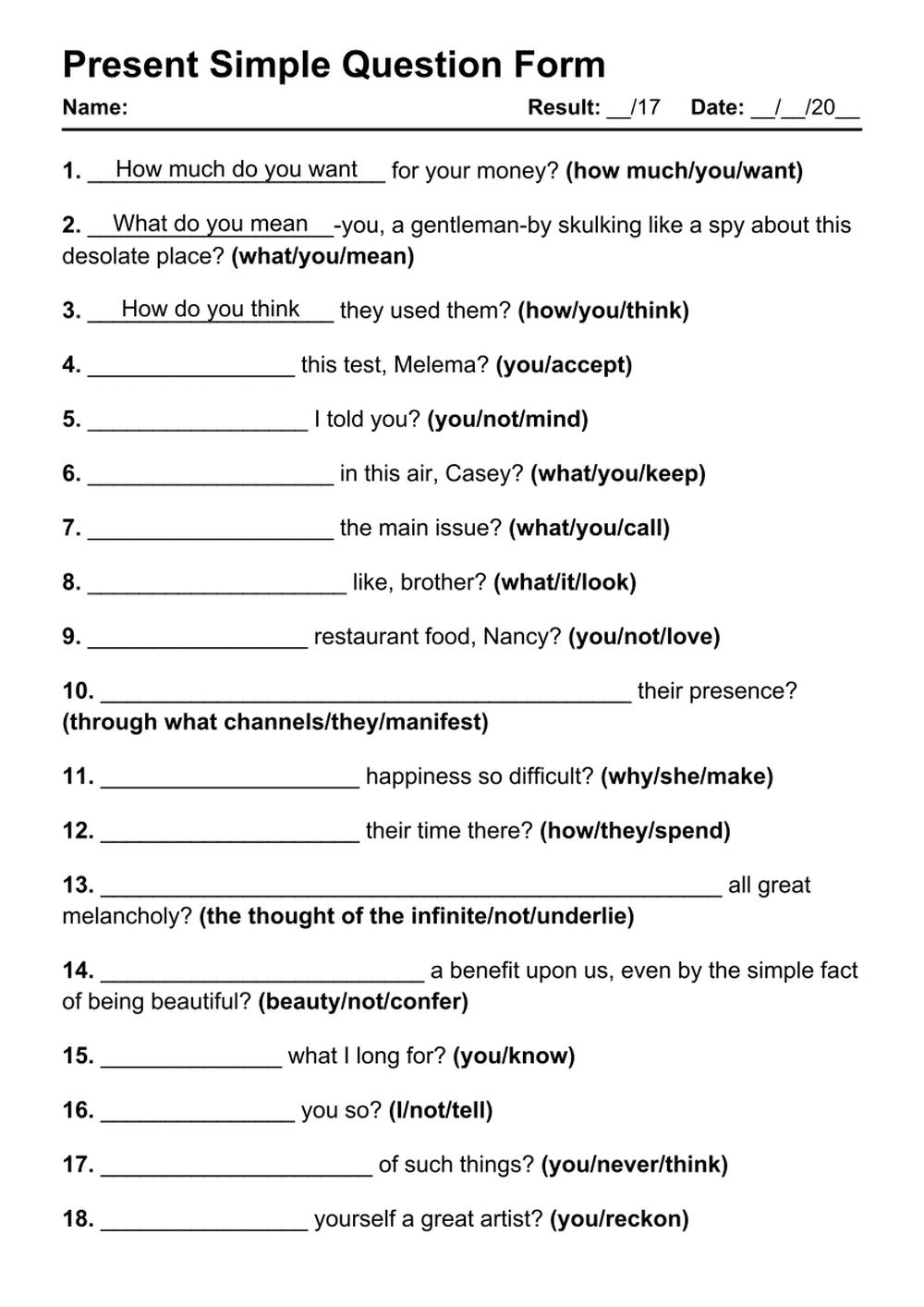
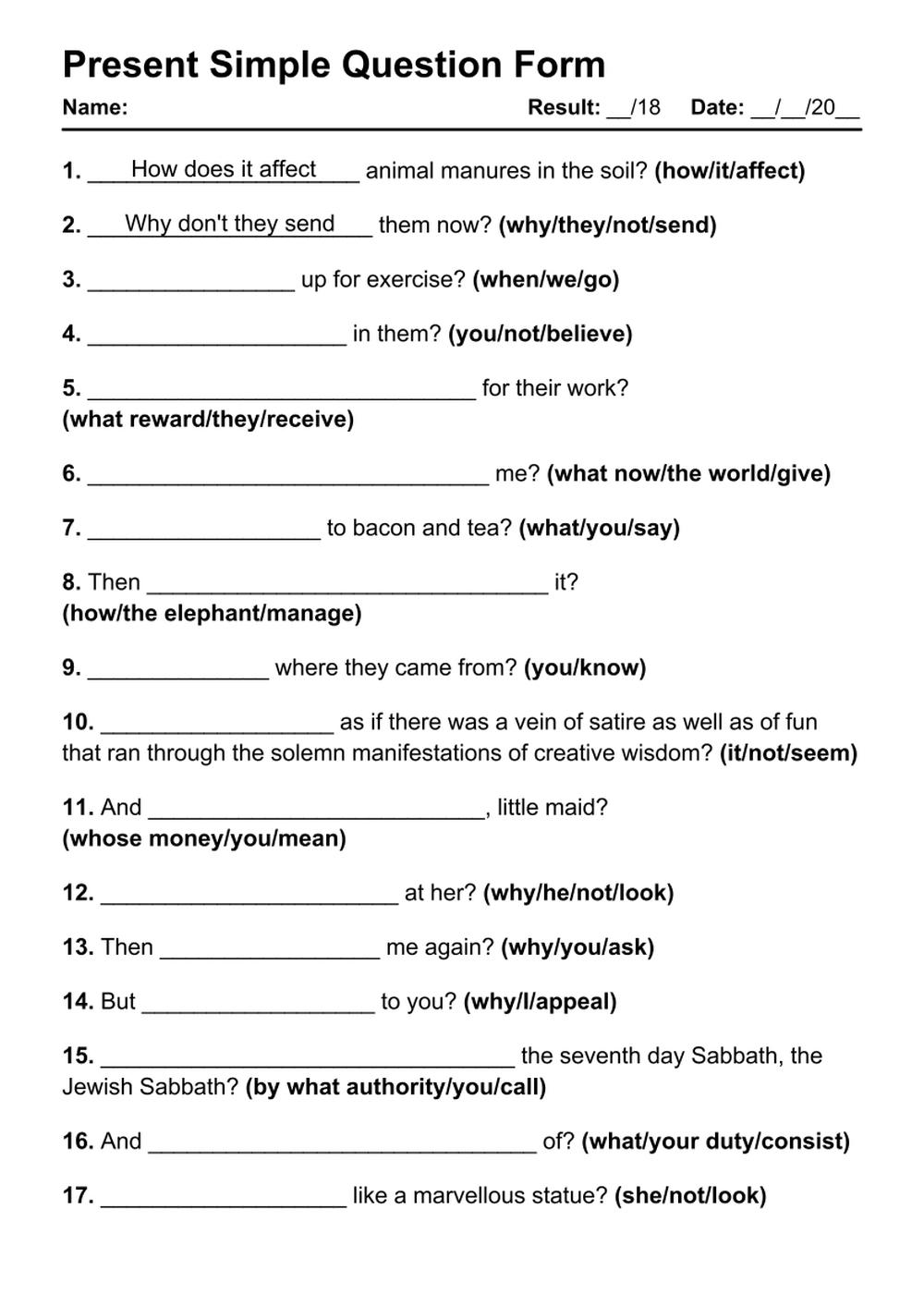
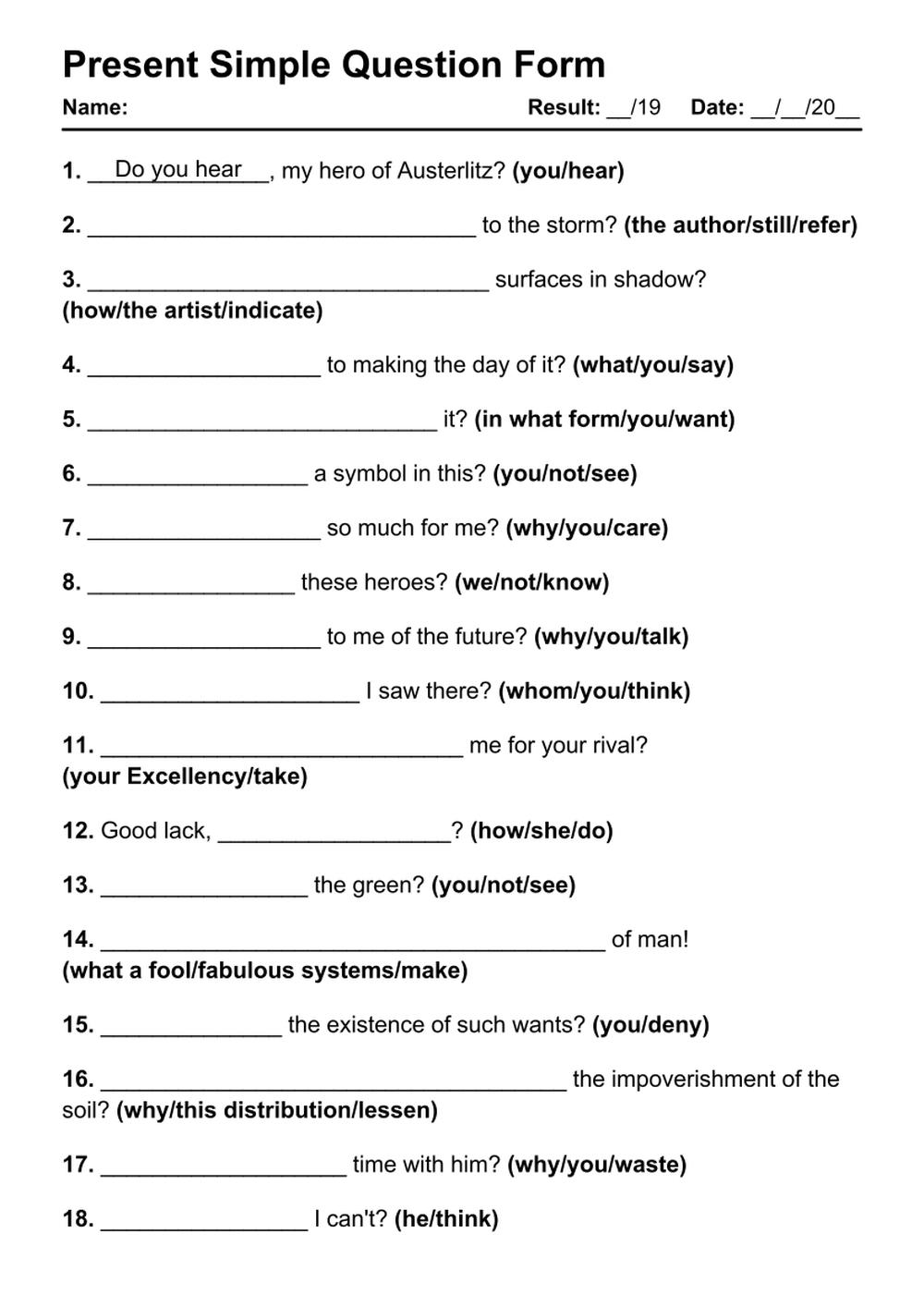
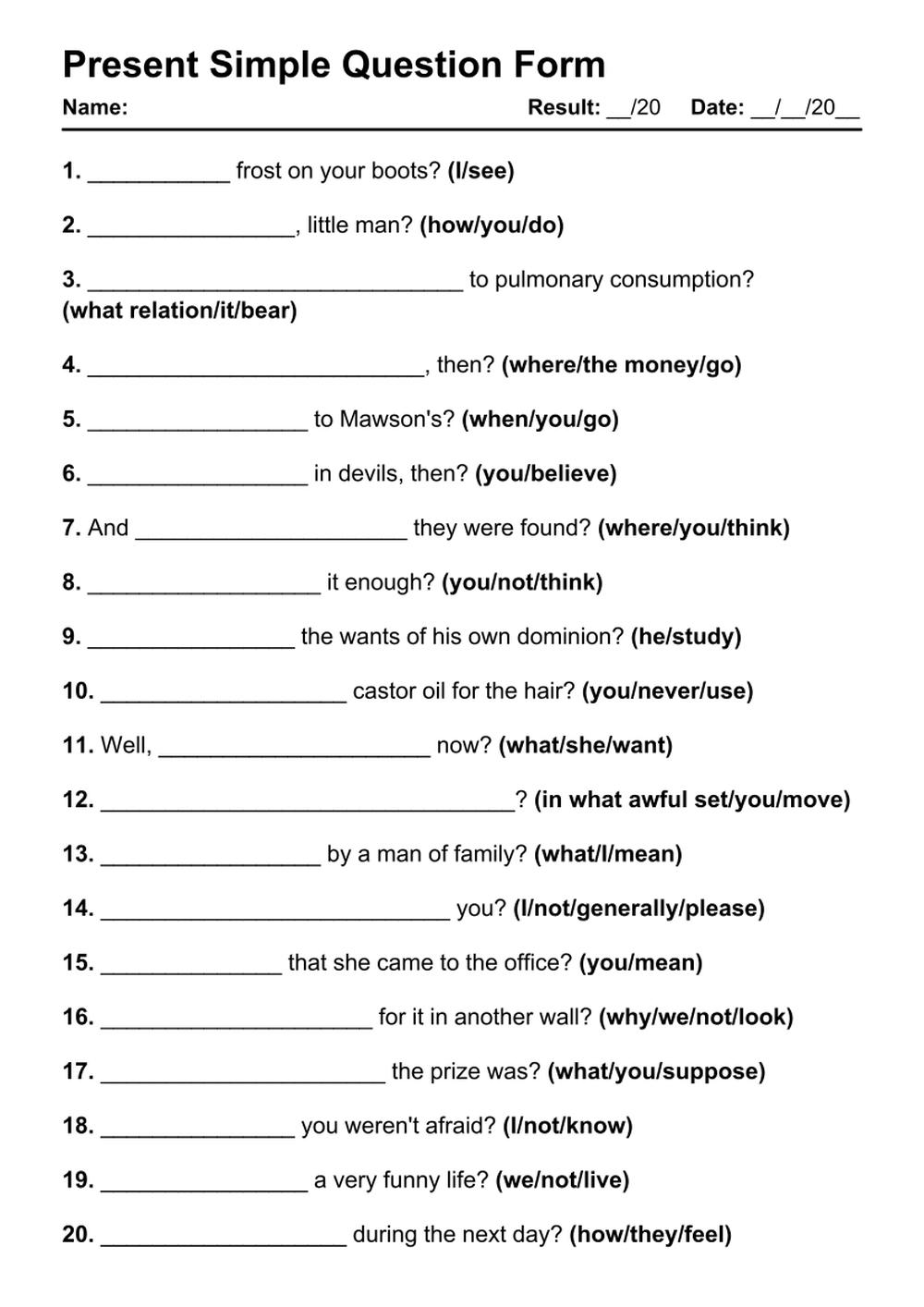
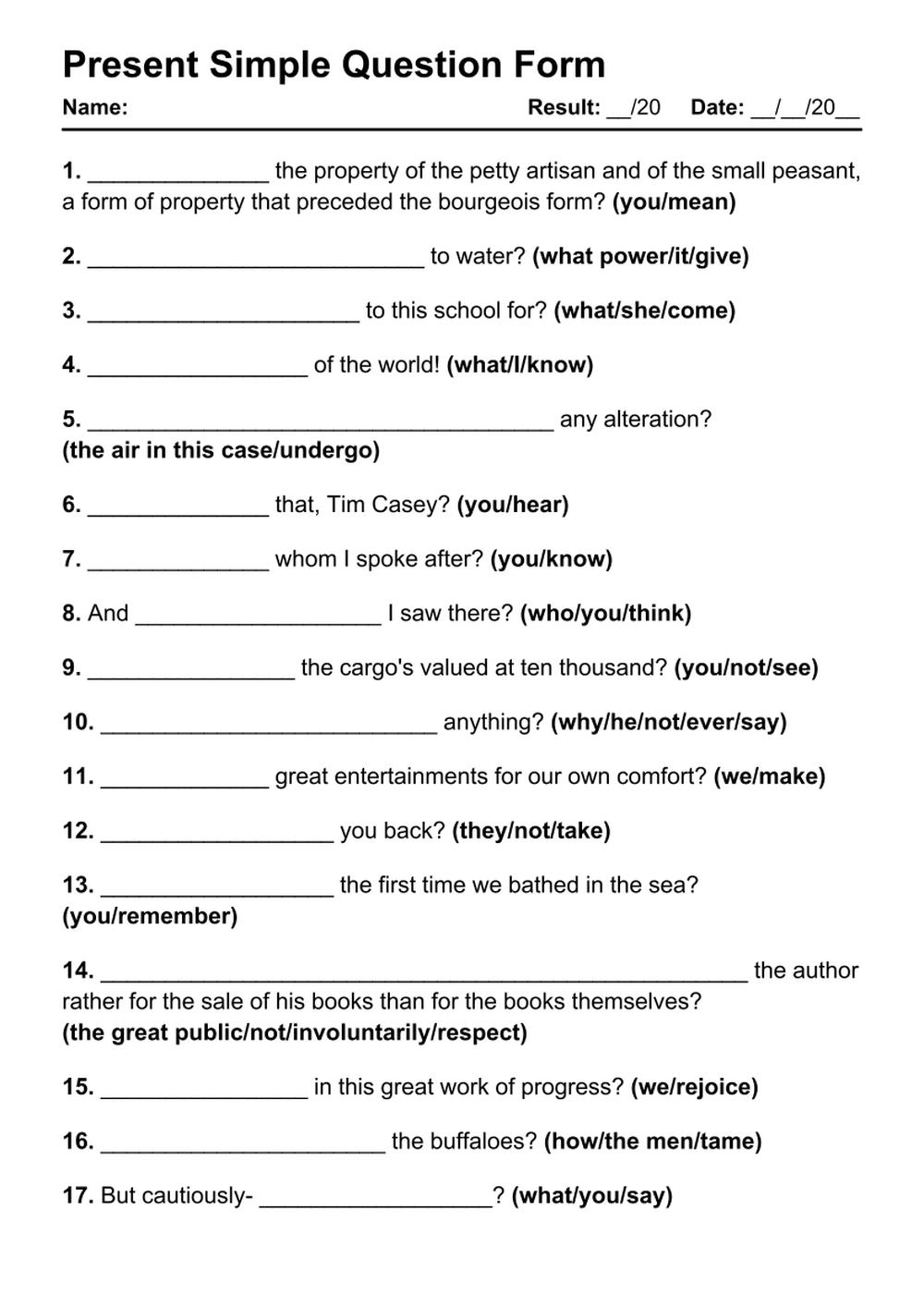
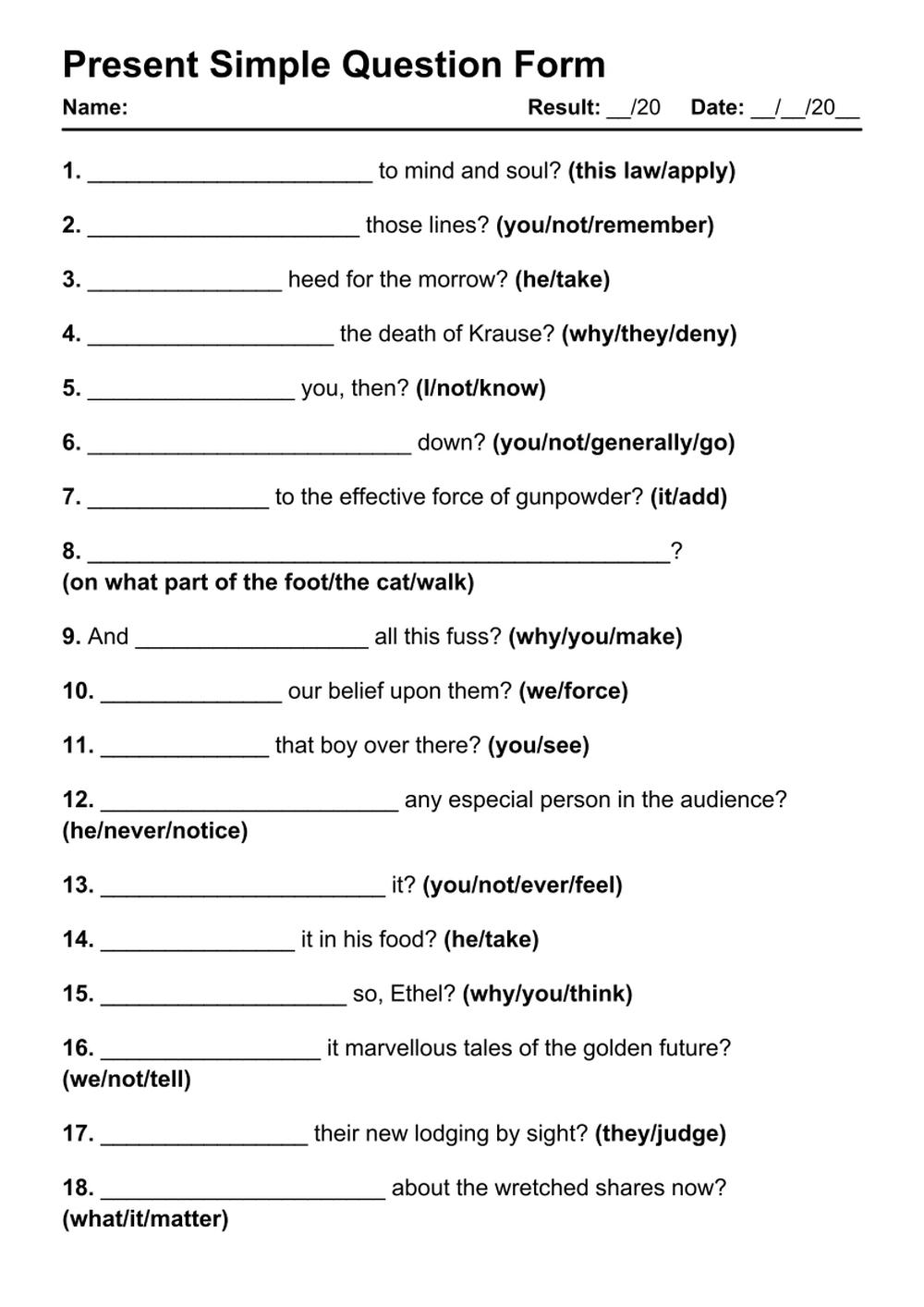
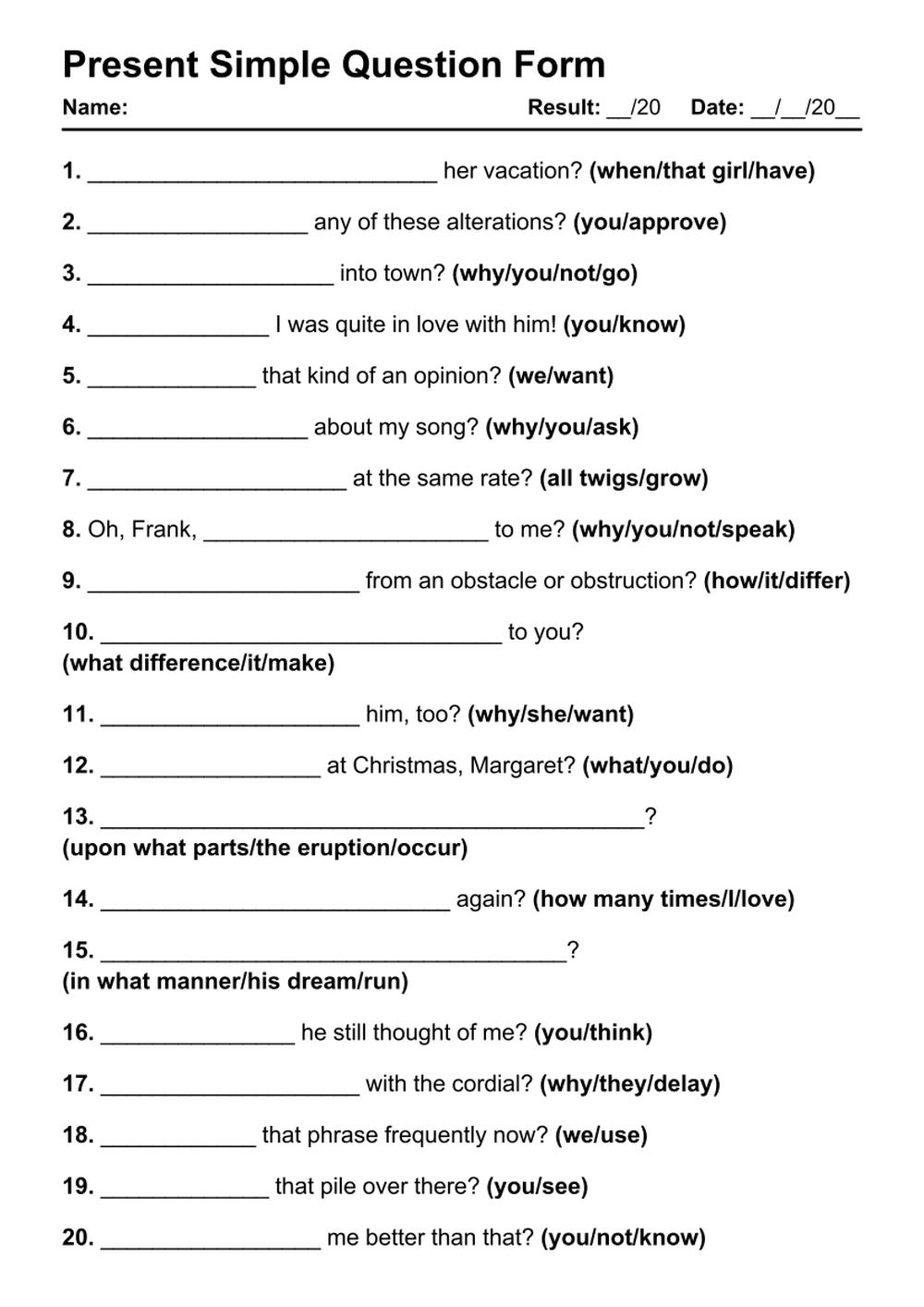












































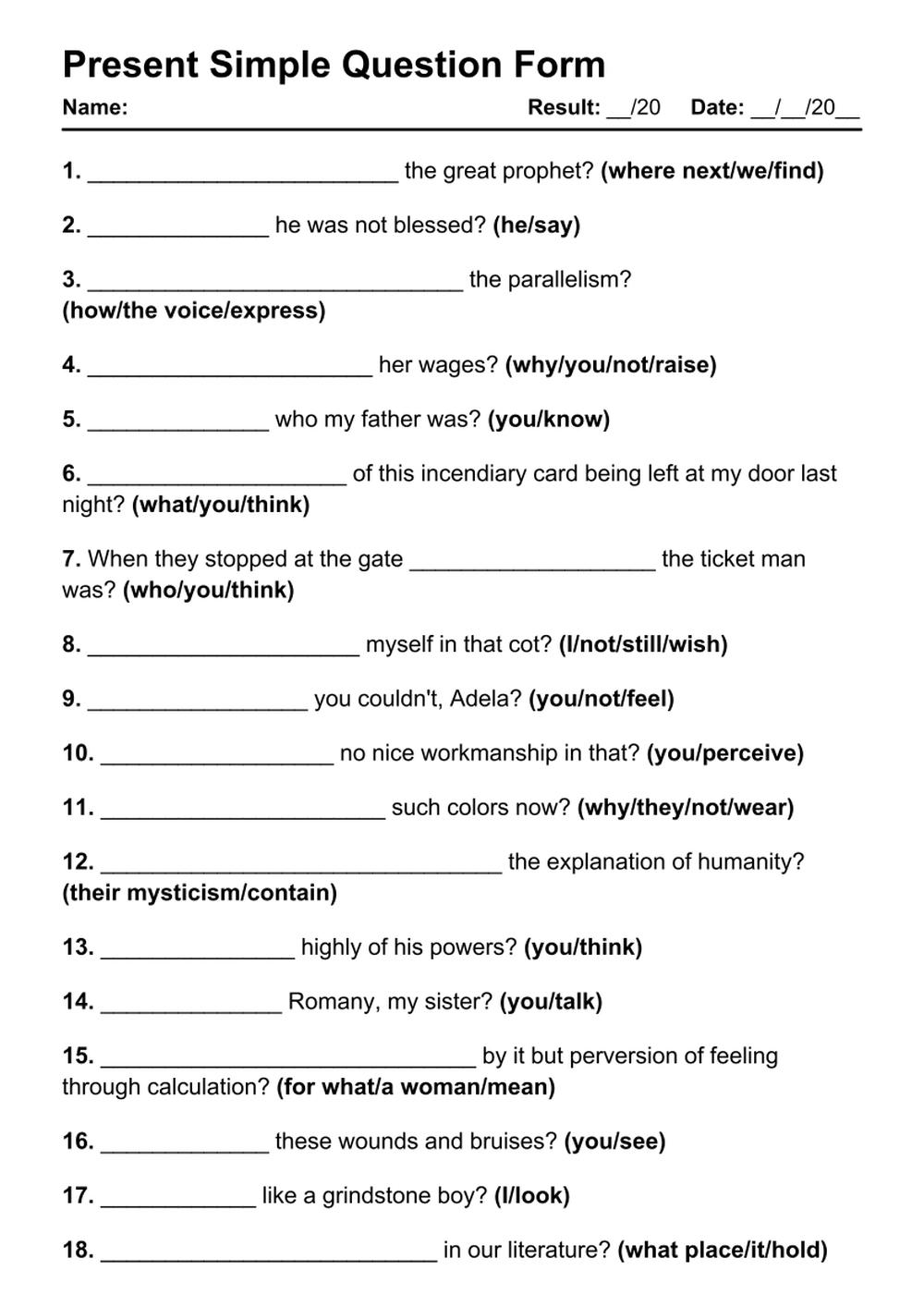























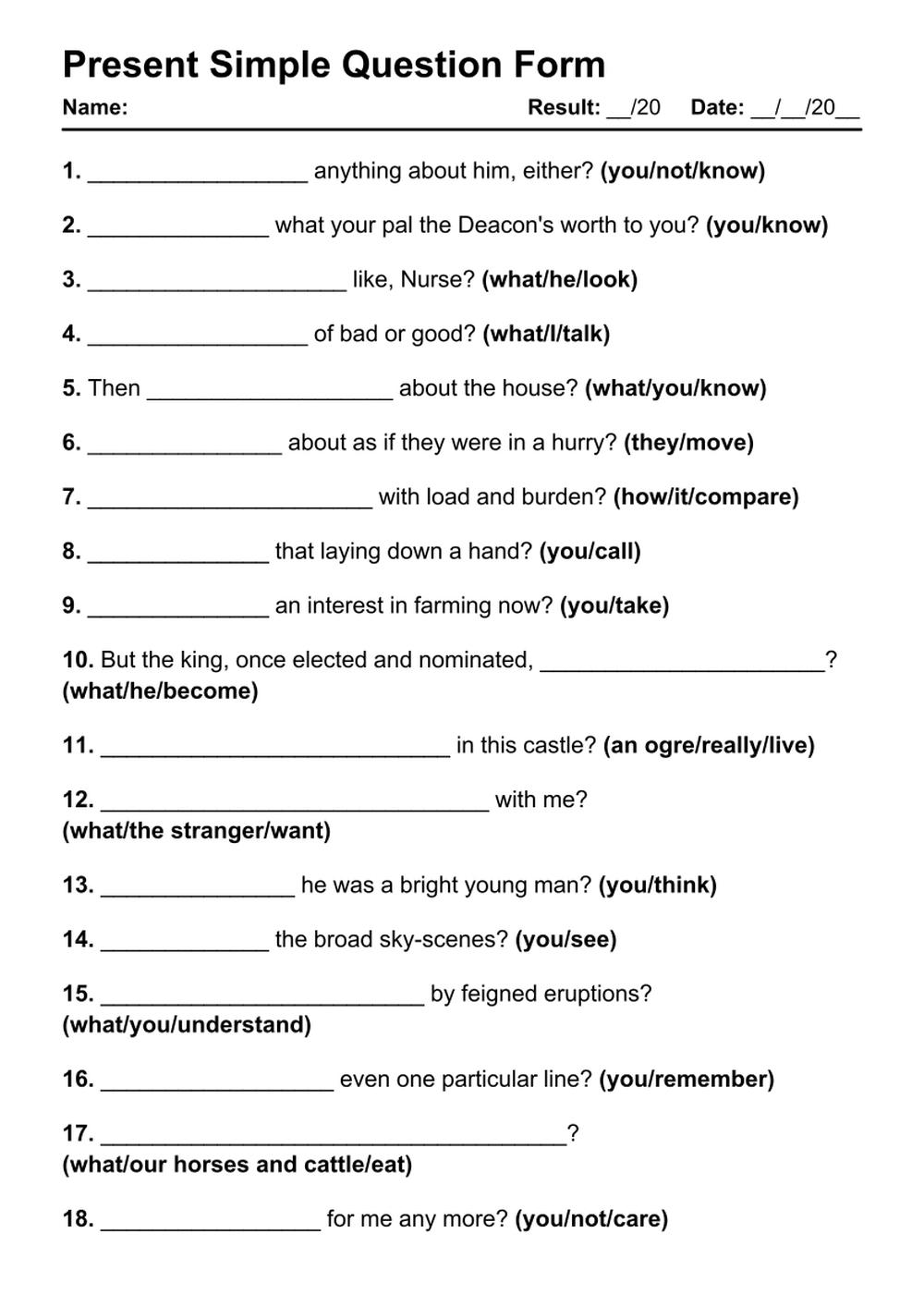

























Present Simple Tense Question Form Printable PDF Worksheet Tests with Exercises and Answers
Access a collection of 101 printable PDF worksheets focusing on the English grammar topic of the present simple question. Download fill-in-the-blank tests with exercises and answer keys for present simple tense question form to print for free. The activities in the sheets are suitable for kids, adults, ESL learners at the beginner, elementary, and intermediate levels to practice English grammar.

 Bundle
Bundle Worksheet
Worksheet
 Save
Save